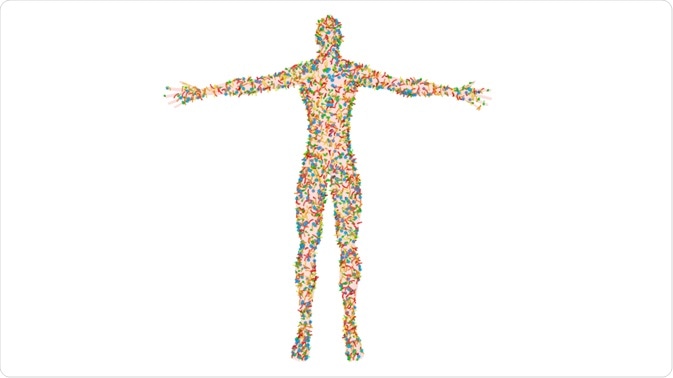The importance of studying the human/industrial microbiome
An increasing body of evidence is elucidating the essential role the microbiome plays in regulating human health.

Image Credit: vrx/Shutterstock.com
Abnormalities in the microbiome have been linked with several diseases and health problems, such as cancer, gut and liver diseases, obesity, inflammatory bowel disease, and more.
Research continues to investigate how the microbiome impacts health, with scientists (gastroenterologists, hepatologists) exploring how the behavior of the microbiome can lead to illness, and how they can manipulate the microbiome to develop new therapeutic strategies.
Despite the advancements that have been made in studying and deeply understanding the intricacies of the human microbiome, it is still not possible to diagnose and cure diseases.
To get us closer to developing these treatments and diagnostic methods, scientists must first gain a thorough understanding of how the microbiome of a healthy person works, distinguishing how this can differentiate compared to an unhealthy person’s microbiome.
Apart from the health benefits that can be gained from studying the (human) microbiome, the efficiency of some industrial processes can be optimized as well.
There is a field of research that is exploring the industrial microbiome to improve the production of beverages, cleaning products, food, paper, probiotics, and more.
Bioinformatics is one area of research that is contributing to growing the understanding of the microbiome, allowing scientists to see the activities of the microbiome far clearer through the meta-analysis of data.
This is helping not only to determine which microbial species/rearrangements lead to diseases but also to uncover how microbial communities can be exploited to enhance the production of certain products.
Using meta-analyses to understand and uncover trends in large datasets
The process of obtaining, storing, and analyzing significant amounts of biological data is known as bioinformatics. Its main aim is to further our knowledge of biological processes.
It is an interdisciplinary practice that integrates areas of biology, medicine, mathematics, physics, and computer science.
Following the vast amount of biological data that was produced by the human genome project (a project which had as a goal the identification and mapping of the genes of the human genome), scientists began to analyze and interpret these findings to gain insights about human biology. Bioinformatics was born out of this, and to date, a wealth of biological data has been analyzed in multiple studies.
However, the problem is that individual studies alone can provide conflicting results, and analytical methods do not always align.
Therefore, the process of conducting meta-analyses is emerging in the field of biology, particularly within the study of the microbiome. Meta-analyses are employed to systematically combine the findings from multiple studies, calculating an absolute effect.
This helps to cancel out any anomalies found in individual studies, highlighting any significant effects. Meta-analyses can reveal key insights about the samples they are studying, and when combined with bioinformatics, they can help reduce a large amount of biological data into useful insights.
The advantages of using meta-analyses on bioinformatic studies into the microbiome have been proven in discovering associations between certain microbes and disease, helping to elucidate certain pathologic routes.
Meta-analysis in combination with bioinformatics has revealed potential markers of disease in the form of pathogenic microbes and bacteria in the microbiome. The data extracted through meta-analyzing studies with the help of bioinformatics is helping to highlight potential new avenues of disease prevention, diagnosis, and treatment.
Also, these analyses have revealed microbes and bacteria that are related to general overall health, rather than being disease-specific.
This information may influence the future of healthcare, particularly as our understanding of diet can influence the microbial populations in our gut.
Since bioinformatics has the potential of processing a wealth of data in different ways, we will likely see more significant insights being discovered in the future that will assist scientists in combating many microbiome-related diseases, as well as promoting overall health.
Sources:
- Allaband, C., McDonald, D., Vázquez-Baeza, Y., Minich, J., Tripathi, A., Brenner, D., Loomba, R., Smarr, L., Sandborn, W., Schnabl, B., Dorrestein, P., Zarrinpar, A. and Knight, R. (2019). Microbiome 101: Studying, Analyzing, and Interpreting Gut Microbiome Data for Clinicians. Clinical Gastroenterology and Hepatology, 17(2), pp.218-230. https://www.ncbi.nlm.nih.gov/pmc/articles/PMC6391518/
- Duvallet, C., Gibbons, S., Gurry, T., Irizarry, R. and Alm, E. (2017). A meta-analysis of gut microbiome studies identifies disease-specific and shared responses. Nature Communications, 8(1). https://www.nature.com/articles/s41467-017-01973-8#citeas
- van den Bogert, B., Boekhorst, J., Pirovano, W. and May, A. (2019). On the Role of Bioinformatics and Data Science in Industrial Microbiome Applications. Frontiers in Genetics, 10. https://www.frontiersin.org/articles/10.3389/fgene.2019.00721/full
- "Human Genome Project Completion: Frequently Asked Questions". National Human Genome Research Institute (NHGRI).
Further Reading
Last Updated: Feb 19, 2020